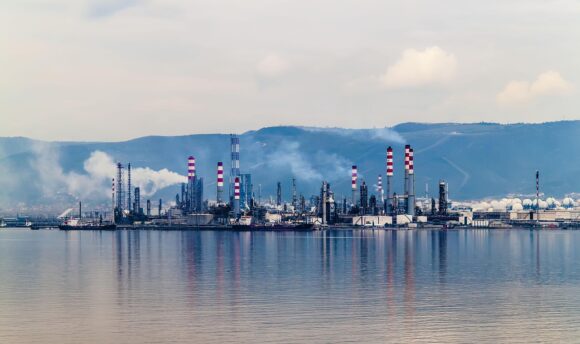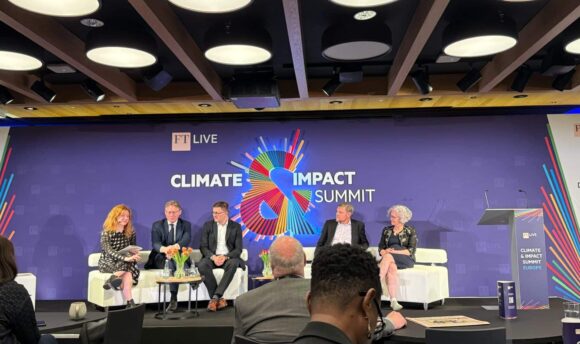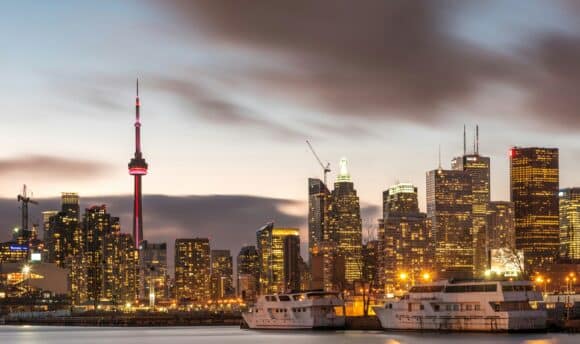Activists gathered in front of the International Association of Insurance Supervisors (IAIS) annual conference venue in Tokyo, Japan, on the 9th of November, asking the global standard-setting body to take decisive measures and strengthen their efforts to prevent the worsening of the global climate crisis.
📣Outside the @IAISNews annual conference last week attended by over 100 #insurance supervisors from around the world.
Insurers can be the secret to unlocking climate action. Will regulators step up to make this happen? #InsureOurFuture pic.twitter.com/IC0aOr0zkW
— Insure Our Future Global (@InsOurFuture) November 13, 2023
What is the IAIS, and why are we targeting them?
According to its website, the IAIS is “responsible for developing and assisting in the implementation of principles, standards and guidance as well as supporting material for the supervision of the insurance sector.” Therefore, the IAIS has a clear role to play when it comes to setting standards and giving guidance to the industry.
Prior to the action, we sent a letter signed by 33 civil society organizations from around the world, urging the IAIS to:
- Take a precautionary approach to addressing environmental risk by providing guidance to supervisors and ensuring the risks are reflected in capital standards;
- Set expectations for credible transition plans;
- Steer the industry away from exacerbating climate risk;
- Ensure that companies who contribute to the climate crisis do not get public funding support to insure climate risks; and
- Rely on climate science.
As a result of our letter, the IAIS invited us to a meeting to discuss our demands. IAIS representatives tried to downplay the association’s role, however, as a global body for supervisors of the insurance industry, a strong message from the IAIS on climate action will have a deep impact across the industry and will help push laggards to take action. During the meeting, IAIS representatives highlighted that the Association is currently considering exploratory work on the role of insurance supervisors in relation to transition planning next year, although questions remain about the speed and effectiveness of their efforts.
Alongside meeting with the IAIS, we also attended sessions at their annual conference where we were disappointed to discover that there was hardly any discussion on the role of insurers in preventing unmanageable climate change. Although the onus for achieving net zero greenhouse gas emissions does not sit solely with insurance supervisors, the IAIS should step up and take decisive action to stop the insurance industry from continuing to add fuel to the fire by underwriting and investing in new fossil fuel projects.
Why we need the IAIS to step up
On the same day as the IAIS annual conference, activists also urged Tokio Marine, the biggest property and casualty insurer in Japan and the 7th biggest in the world, to rule out support for the East African Crude Oil Pipeline (EACOP) project. EACOP is a well-known and highly controversial pipeline project set to link oil wells in Uganda with the Tanzanian coast. Although financing and insurance for the full project has yet to be finalised, EACOP has already displaced thousands of people from their land, and if it goes ahead it will cause irreversible damage to local communities, the environment, and the global push to keep warming to a maximum 1.5C, in-line with the Paris Agreement.
And in Manchester, @letsStopEACOPuk protestors made sure @tokiomarinehcc heard our calls to exclude insuring the East African Crude Oil Pipeline. #StopEACOP #InsureOurFuture https://t.co/7hycoqw5ZL
— Insure Our Future Global (@InsOurFuture) November 13, 2023
UK activists in Manchester and London also hosted actions calling for Tokio Marine to rule out EACOP.
View this post on Instagram
Activists are worried that insurance underwriting of this project might be agreed upon soon. In Japan and overseas, civil society organisations have repeatedly asked Tokio Marine to rule out providing insurance underwriting to the project, but the company has remained silent
In addition, our latest insurance scorecard identified Tokio Marine as the worst laggard among the three major insurers in Japan. Therefore, it was quite a surprise to see a representative from Tokio Marine as a panelist for the IAIS session on ‘Data, transparency and disclosure’, aiming to close climate data gaps and mitigate risks of greenwashing. However, their participation in the event appears to be an act of greenwashing in itself.
To avoid further greenwashing, Tokio Marine should answer the civil society organisations, and publicly announce ruling out underwriting for EACOP and all other new fossil fuel projects immediately. The IAIS should step up and support the global efforts to fight the deepening climate crisis by creating guidelines for supervisors that require insurers to implement transition plans aligned with credible 1.5C pathways.
SEE: The 2023 #InsureOurFuture scorecard is here!
Find out which insurers are the biggest contributors to the global climate emergency, 50 years on from the first warning about climate change within the industry.
Need convincing? Hear @patienceNabzhttps://t.co/cFaZp6pmMI pic.twitter.com/YABAOAU5Rq
— Insure Our Future Global (@InsOurFuture) November 9, 2023
Ugandan Stop EACOP climate activist, Patience Nabukalu, states in this video, “We are living in a climate emergency.” There is no more time to waste, no need to stop and ask ‘whose job is it to drive change?’ We must all step up and collaborate with each other to secure our collective future and a future for our children. This is what Japanese people typically do when faced with a natural disaster, and this is what we must do now, when faced with the gravest threat humankind has ever known.
The IAIS could lead the way by setting clear standards that call for insurance companies to stop underwriting new fossil fuel projects and to instead implement credible, science-based transition plans. We hope that the IAIS will step up and act like the leaders of the industry they position themselves to be.



